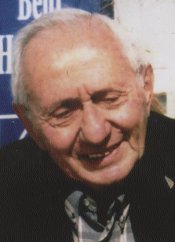
Photo Credit: http://www.flickr.com/photos/emagineart/4741451457/sizes/z/in/photostream/
Less, Rather Than More Medication Can Mean Better Quality of Life and Longer Life
Mr B aged 72, taking 10 different medications, with a malfunctioning kidney and diagnosed with Alzheimer’s Dementia, was fortunate that his family called in Dr. Doron Garfinkel, a specialist in Internal Medicine and Geriatrics, to treat him. Two weeks later his Alzheimer’s was gone. One year later he received a kidney transplant, and he has gone on to lead a happy and normal life. The only thing that changed following Dr. Garfinkel’s recommendations was that he reduced Mr B’s medication consumption to 4 in place of 10.
The phenomenon, known as polypharmacy, of senior citizens being caught in a web of consuming vast amounts of medications prescribed over the years by various physicians, is well-known both to the patient’s family members and among the medical community
Most of the older population accumulate different medications over the years. Nothing is ever discontinued and so the list grows with the years. The problem is that while medicine has a good idea of the interaction between two medications, when the list grows, so grows our lack of understanding of the interactions. In addition, what was an appropriate dosage for someone aged 55 is overdosage for someone of 75, as the elderly secrete waste and poisons more slowly than the young.
Dr. Garfinkel is Head of the Department of Geriatrics and Palliative Care at the Shoham Geriatric Medical Center in Pardes Hanna. He also serves as a consultant to a number of Israel’s Health Funds and as an approved physician for providing second opinions.
Some years ago Dr. Garfinkel carried out several studies in nursing departments and in the community with the aim of reducing medication in the elderly to the appropriate minimum. The results, while not always as dramatic as in Mr B’s case, were that roughly 50% of medications were cut out, patient quality of life improved as did longevity, and everyone saved money.
His research demonstrated that nine out of every ten medications discontinued, which had been prescribed for patients hospitalized in long-term nursing departments, were indeed unnecessary. The most dramatic effect of Dr. Garfinkel’s method on these patients was the substantial reduction in mortality, morbidity and number of hospitalizations.
The results of his studies have been published in scientific journals and by the World Health Organization and he is a frequent speaker at medical conferences all over the world. For further information see www.drugstop.co.il, www.dr-g.co.
WARNING!
Please don’t go and cut out your medications on your own. Before taking any steps at all, consult your family physician or geriatrician or ask your Health Fund for a referral to a specialist.
 Let’s have a bit of Playback
Let’s have a bit of Playback-1372659501.jpg) Buying New Construction in Israel
Buying New Construction in Israel A lot of hot air - ballooning
A lot of hot air - ballooning Yad Sarah's new house in Raanana
Yad Sarah's new house in Raanana English speaking Feldenkreis
English speaking Feldenkreis Men don't Make Passes at Girls who Wear Glasses
Men don't Make Passes at Girls who Wear Glasses Mike Rubin
Mike Rubin